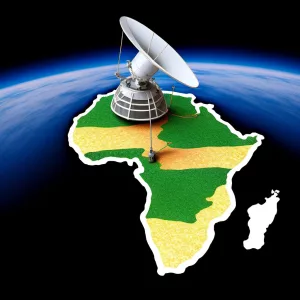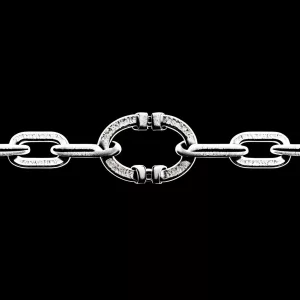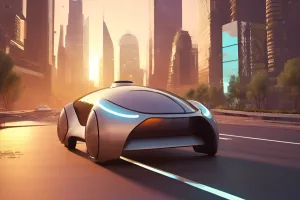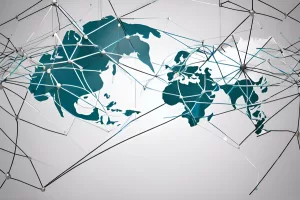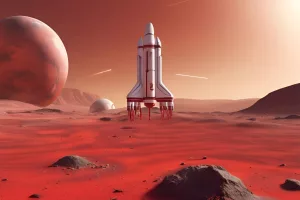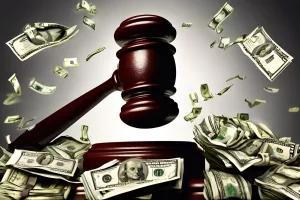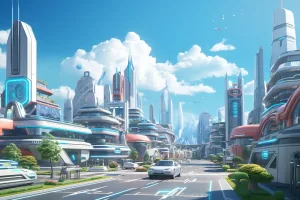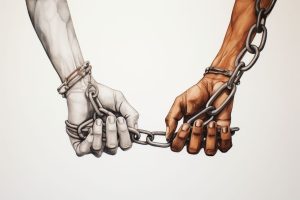Elon Musk and Donald Trump once worked together, hoping to fix government waste and make things run better. But they split because Musk didn’t agree with Trump’s big spending plans. Musk then started a new group called the America Party to challenge the two main parties, shaking up politics. Trump wasn’t happy, seeing Musk as a threat to his power. Their battle is full of drama, showing how tough it is to change America’s political system.
Elon Musk, South Africa, and the Hazards of Misinformation: Navigating a Modern Social Media Storm
Elon Musk’s recent comments about South Africa’s Economic Freedom Fighters (EFF) have stirred up a huge debate about misinformation and racial issues. He claimed that the EFF is promoting “white genocide,” a statement that caused a storm on social media and drew attention from people all over the world. While some support Musk’s view, many others see it as dangerous exaggeration and misinformation. This situation shows how social media can both connect and divide people, making it crucial for everyone to think carefully about the information they share. As discussions continue, it’s clear we need to seek the truth in this complex digital age.
On March 21, 2023, a fierce debate erupted between Elon Musk and Julius Malema during a rally in South Africa. Musk criticized Malema for singing a controversial song that many believe promotes violence against white people, while Malema defended his policies aimed at correcting land injustices. Their clash highlights the deep racial tensions and differing views on South Africa’s future, with Malema calling for change and Musk expressing frustration over being blocked from doing business in the country. This public feud reflects the ongoing struggle over race, history, and equality in a nation still healing from its past.
Elon Musk’s Starlink is facing a tough time in South Africa because it hasn’t applied for the required license, which involves local laws aimed at helping black South Africans gain economic power. Musk stirred up controversy by suggesting that he’s being blocked because of his race, but South African officials quickly denied this claim. They insist that Starlink can operate if it follows the rules, which require foreign companies to share ownership with local groups. The debate highlights the ongoing struggle between attracting foreign investment and promoting equality in South Africa, making it a hot topic for many.
Elon Musk’s recent move to distance himself from his South African roots shines a light on important issues about identity and governance. Born in Pretoria, he rose to fame as one of the richest people in the world, but his criticisms of South African leadership show he feels let down by his homeland’s struggles. Musk’s comments echo a broader feeling of disappointment among many South Africans, reflecting the ongoing fight for justice and equality in a country still grappling with its complex past. His journey reminds us that personal stories can connect deeply with larger global issues, urging us to rethink our views on heritage and the need for change.
Elon Musk recently called Cape Town a “beautiful theme park,” highlighting its appeal and safety for tourists. His comments sparked a lively conversation about the city’s charm and the importance of safety for visitors. In response, Cape Town’s mayor, Geordin HillLewis, proudly showcased the city’s beauty and vibrant community, inviting Musk to experience it firsthand. He also shared plans to boost safety and encourage tourism as key to the local economy, painting a picture of Cape Town as a lively and resilient place, full of culture and heart.
Elon Musk’s role in government efficiency efforts, especially during Trump’s time in office, is causing a stir. Even though he wasn’t an official government worker, his strong influence led to legal troubles, with fourteen states arguing he acted beyond his advisory role. Critics worry about one person’s power in the government and how it mixes private business interests with public service. Musk’s actions and connections to his companies, like Tesla and SpaceX, raise questions about transparency and fairness in government. This situation highlights the tricky balance between innovation and democratic accountability in today’s world.
The Department of Government Efficiency (DOGE) is a bold effort started during Trump’s presidency to make the U.S. government run better and spend less money. However, it has sparked a lot of arguments and legal battles, with many worried that cutting costs might hurt important services, especially in education. Some judges have blocked DOGE from accessing key financial information, raising fears about privacy and funding for things like health clinics and schools. While supporters like Elon Musk believe DOGE will fix government waste, critics worry it could harm those who rely on essential services. As the debates continue, everyone is watching to see how this will change the government’s future.
Elon Musk and Tesla are leading the way in making selfdriving cars a reality. The exciting “We, Robot” event is set to unveil a new robotaxi that could change how we travel, making it safer and accessible for everyone. While competitors like Waymo and Cruise are racing ahead, Musk believes Tesla’s technology will stand out, even if it isn’t the first to hit the roads. As the world eagerly awaits this showcase, the future of transportation hangs in the balance, promising to reshape our daily lives for the better.
In New York, South African President Cyril Ramaphosa met with billionaire Elon Musk, hoping to attract his investment to South Africa. This meeting was exciting for many, especially with the upcoming launch of Musk’s Starlink internet service, which promises to improve internet access across the country. Ramaphosa’s presence at the UN and his talks with business leaders show his commitment to boosting South Africa’s economy. The anticipation for Starlink is a symbol of hope, inspiring many South Africans to dream big and believe in their potential for success.
Elon Musk, a visionary businessman, advocates for population growth not only on Earth but also to establish colonies on Mars. Despite criticism, Musk remains steadfast in his unconventional approach to population dynamics and his dream of colonizing Mars. He has expressed his concerns about the declining birth rates in Japan and the need for more human beings to fulfill his cherished ambition. While his views on population growth are not confined to Earth, they highlight the need for indepth contemplation and discussion on the future implications of population dynamics.
This ongoing feud is a testament to the power of social media, showing how it can amplify voices, spark debates, and captivate audiences worldwide. The Joust of Giants: What Is the Online Clash Between Elon Musk and Julius Malema?
Elon Musk has announced a groundbreaking development in science and technology: a Neuralink microchip implanted in a human brain. This innovation could allow people with impaired limb function to communicate and manipulate technology through thought alone. The early results of the procedure have been promising, sparking excitement and curiosity around the possible future applications of this advanced technology.
A judge in Delaware has overturned Tesla CEO Elon Musk’s $56 billion compensation plan, which was deemed “inordinately exorbitant.” The ruling is a legal milestone for shareholders calling for limits on executive pay and could have ramifications for executive compensation in the US. Musk seemed unaffected by the ruling, taking to X, a platform previously known as Twitter, to share a piece of advice for budding entrepreneurs: “Never incorporate your company in the state of Delaware.”
The Tesla Cybertruck is a futuristic electric pickup truck that is more formidable than bullets and faster than a Porsche. Its unique design features large, flat, unbent stainless steel plates, making it both fascinating and controversial. Despite concerns about its viability and mass appeal, Elon Musk’s pet project has solidified Tesla’s position as a groundbreaking entity in the electric vehicle market and is expected to hit production levels of 250,000 a year by 2025. The Cybertruck represents a daring leap into the future of automotive design and a demonstration of the relentless chase of innovation in the highrisk game of electric vehicle production.
South African entrepreneur and author Vusi Thembekwayo has expressed his disappointment with Tesla CEO Elon Musk’s recent controversial tweet about Julius Malema. Malema is the leader of the Economic Freedom Fighters (EFF) party in South Africa and was accused by Musk of inciting genocide against white South Africans during the party’s 10th anniversary celebration by singing the struggle song “Kill The Boer.”




